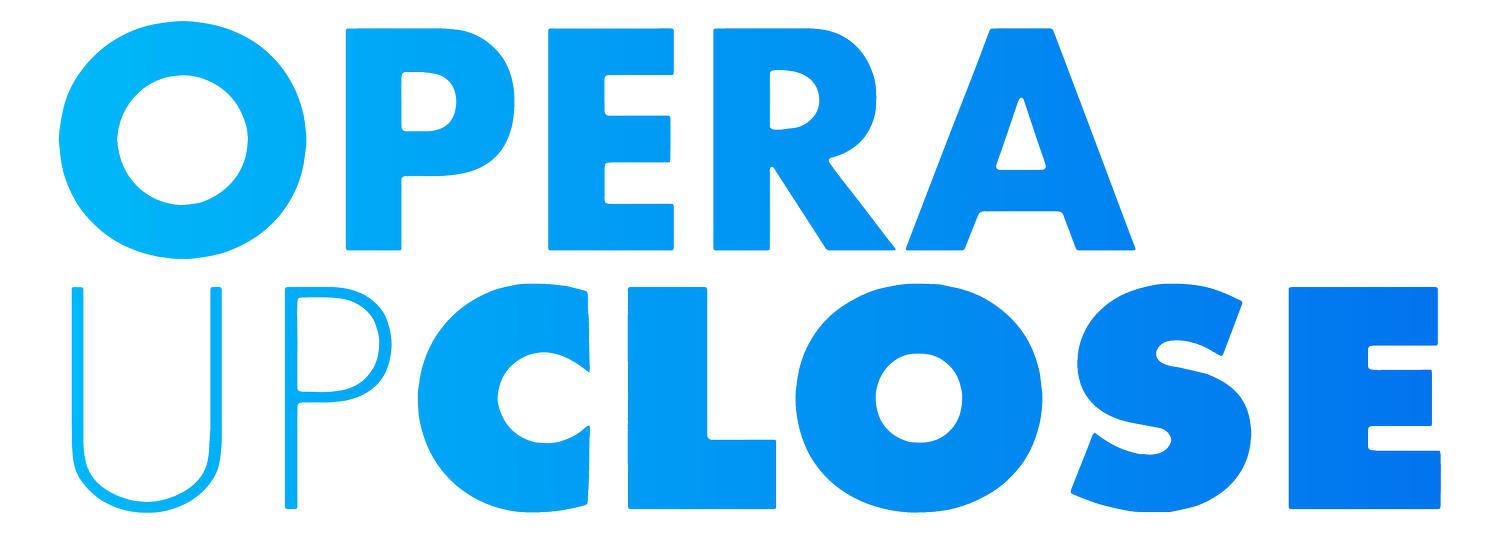Opera's Really Terrible Economic Model
Why we need your help - By Indyana Schneider
Once upon time I was confronted by a blunt question over a cup of coffee: ‘But do you really think the arts should be publicly funded?’ The question took me by surprise because no one had ever really asked me outright. These days I work as the Development Manager for OperaUpClose and my answer hasn’t changed. Of course.
The argument for arts funding is robust and multi-layered. We could get into the extremely effective use of the arts in healthcare, or the physiological benefits of music in children’s brains. We could discuss the various ways which music fosters a sense of community, or the ubiquity of music in every society to ever have existed. Ever.
But for now I’d like to keep it simple. Without public funding, the arts (specifically opera) wouldn’t survive. Because opera’s economic model is really terrible. And it always has been.
Economic sustainability occurs when your income is greater than your expenditure. If you make more than you spend, you’re fine. But expenses incurred in the production of opera – from sets to salaries and everything in between – will always leave a large fiscal hole in opera companies. It would certainly be more fitting to refer to these ‘Not-For-Profits’ as ‘For-Deficits’, though it doesn’t have quite the same ring to it.
So opera companies are stuck in this omnipresent fight to break even. But why?
Back in the day, the earliest court operas were solely financed by princely patrons. Jacopo Peri’s Euridice (*arguably* the first opera) was performed in Florence at the turn of the 17th century to celebrate the wedding of Maria de Medici and King Henry IV of France. Grand Duke Ferdinando de Medici picked up most of the tab. Opera was a privately funded entertainment service meant to generate pleasure, not profit.
Then in 1637, Venice, the ever-proud republic, opened the first commercial pay-to-view opera house, the Teatro San Cassiano. Though this opera house still benefited from private patronage, Venice had officially introduced a new stream of funding into opera’s economic arena. Skip forward to the 19th century and patronage was largely substituted by state funding. I appreciate that this is a sweeping retelling of an intricate history, but my point is that throughout time, opera has always sought external funding.
These days, financial autonomy in opera resides in box office sales, with a little extra in the way of programmes and merchandise. Though ticket sales cannot possibly cover what it costs to put on a show. The general rule of thumb is that for high-end arts-promoting organisations, around 40% of expenditure is covered by ticket sales – 39.5% for The Royal Opera House and 37.8% for the Metropolitan opera the last time I checked. Interestingly, the make-up of this percentage differs greatly between London and New York. For the ROH, donor income and investment returns cover 17% of expenditure, which differs starkly from the Met’s 65.9%. We rely far more on government funding. So, the diameter of the inevitable fiscal hole is only expanding as governments slash funding to the arts.
Further still, the way to sell opera tickets is to promote opera, which means combatting barriers to accessibility with an Opera For All mentality and action plan. 2013/4 DCMS figures show only 3.9% of adults in England attended opera. Those from lower socio-economic groups are far less likely to engage with the arts in any form and opera in particular.
OperaUpClose encourages people unfamiliar with opera to try it by strategically breaking down barriers preventing them from doing so. We provide free tickets for school children, heavily reduced ticket pricing, workshops, post-show talks, new commissions, and artistic risk-taking. But in doing so, we’re making the omnipresent fight to break even just that little bit more challenging. So you see the problem? The more we try to make opera accessible, to combat its exclusivity, the less financially stable we can be.
Why does OperaUpClose need your help?
Because OperaUpClose is committed to living, vibrant, relevant, exciting opera.
Because it is our mission to provide this art-form for all to enjoy and be inspired by.
Because even if we sell out, we still need to raise £260,000 every year just to stay alive.
Because although opera’s economic model is really terrible, we do it anyway.
Because opera itself is really extraordinary.
